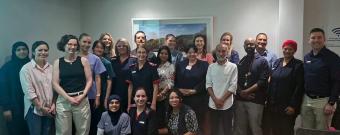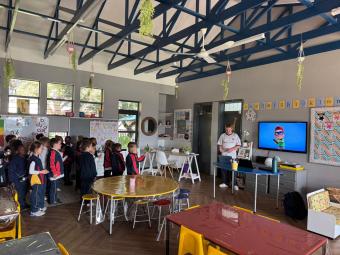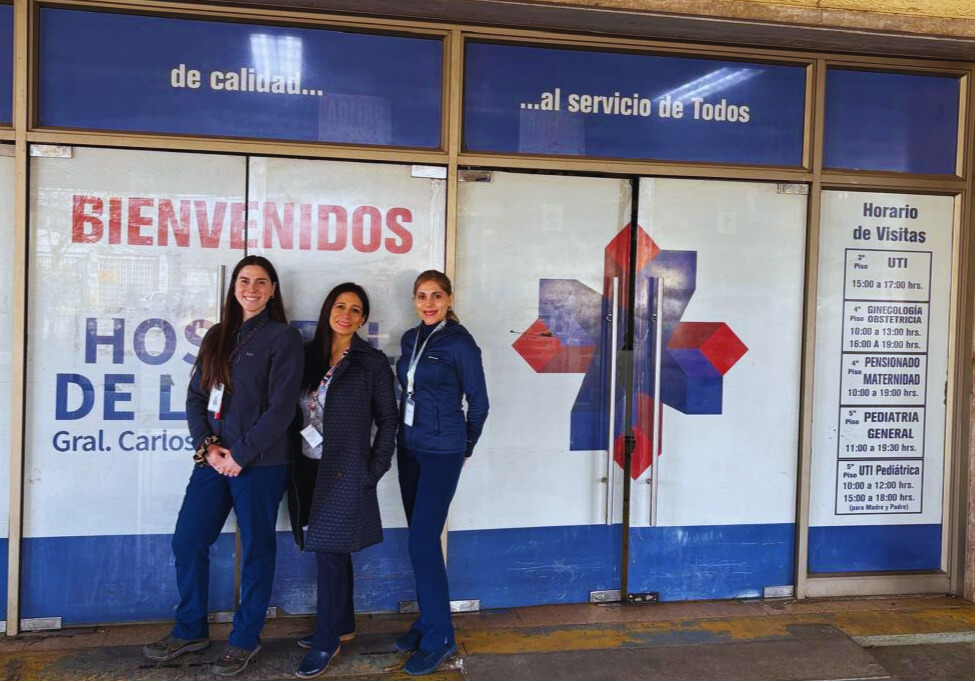
I am Luz Álvarez, an Angels consultant in Chile and a passionate nurse. I worked in neurology for a decade before becoming a consultant to this beautiful Initiative. And I want to share with you an experience that fills me with pride and hope.
In the heart of Chile, in the Maule region, stands the Hospital of Linares. Fruits and vegetables, meat and wine are the soul of this land, its essence and destiny. The hospital is a bastion of public health in a region where rural and urban life is intertwined. It serves a population of approximately 260,000 people, about 17 percent of whom are rural patients.
At Linares Hospital, I have the privilege of working with an extraordinary team of nurses who have become the heart of the stroke care program. Every day, these professionals not only provide care, but they lead with courage and commitment at every step of the care process. They include María Soledad Pereira, who is deputy director of care management, Carla Molina, emergency supervisor, and Catalina Sánchez, clinical nurse.
From the moment a stroke patient enters the hospital, whether under their own steam, by ambulance, or transferred from other health centers, these nurses know that every second counts. They not only apply well-defined protocols, but also precisely coordinate each action needed – from the initial evaluation and the CT scan, to connecting with the neurologist who provides teleassistance from the nearby city of Talca. Their leadership and decision-making capacity are crucial to determine the appropriate treatment, either thrombolytic or medical management.
In Chile, nurses are the pillars of patient care management, and that’s what inspired me to pose a big challenge to this team, namely to monitor the quality of care of all stroke patients who arrived at the hospital, whether they were ischemic or hemorrhagic, or a transient ischemic crisis. As a nurse, I knew that, with their experience and commitment, they could drive meaningful change in the care of these patients.
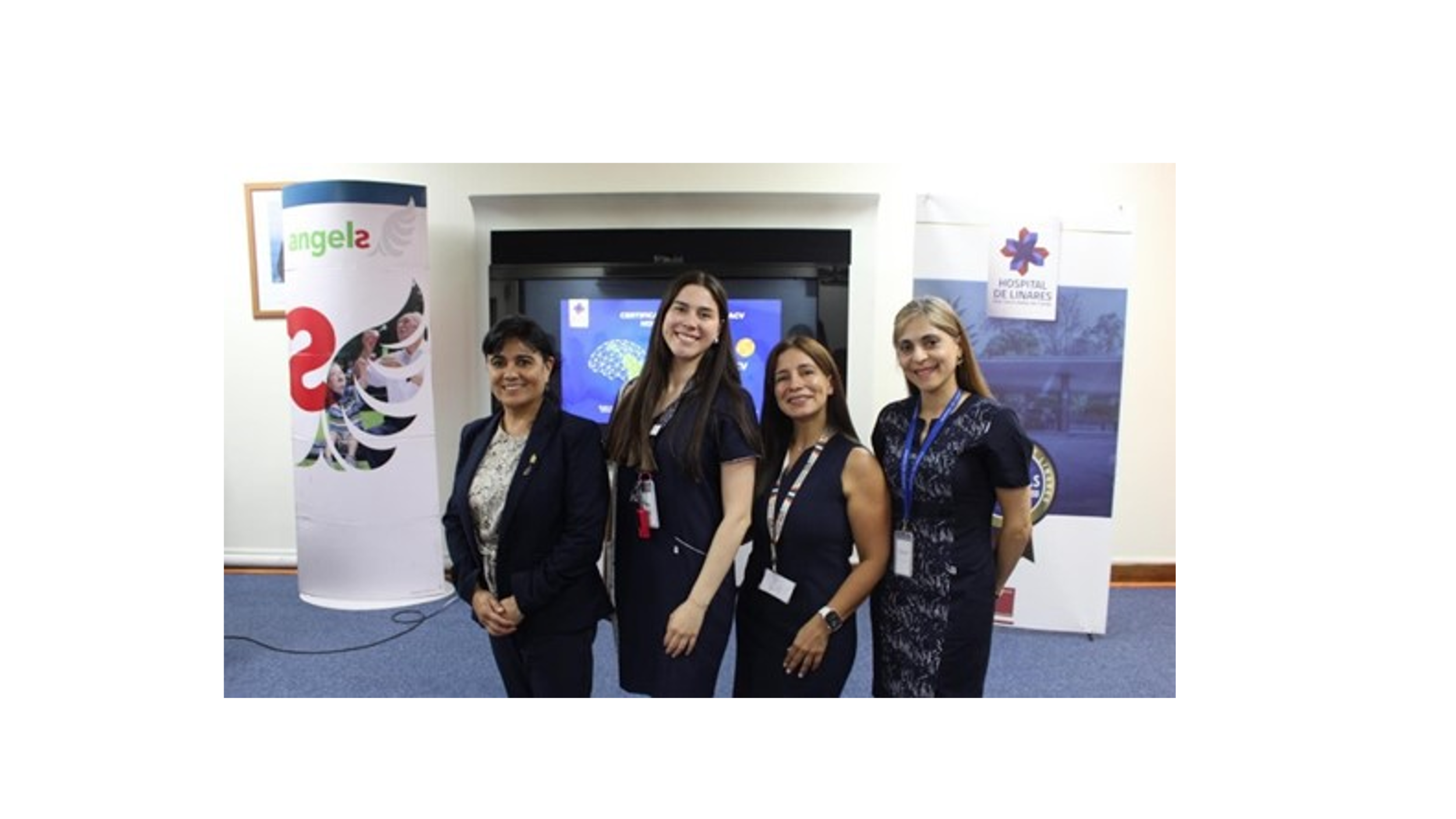
A curious woman
I chose to be a nurse because it combines my interest in the healthcare field with my vocation for service.When I graduated and started working, there were no treatment opportunities for patients who suffered a stroke. It was a lamentable and dramatic situation, as those who survived were left with severe disabilities.
I worked in the Critical Care Unit of Clínica Santa María, a private healthcare center that initiated intravenous thrombolysis in Chile. Seeing how this treatment changed people’s outcomes marked my professional journey, and that’s why I decided to work in neurology.
Neurology nursing requires specialized knowledge, including the ability to perform neurological evaluations to monitor patients' conditions, and knowing how to prevent new events and/or complications. Beyond technical competencies, a nurse working in a stroke unit must know how to work in a team to provide comprehensive care to patients. And because a stroke not only impacts the patient but also their family, the nurse must be generous and create space for emotional and spiritual support for their patients.
I am a curious woman. Therefore, as a nurse in the cerebrovascular unit, I actively participated in nursing workshops and congresses. That’s how I started giving training talks on thrombolysis in stroke to nursing teams.
In 2018, Rodrigo Campos, Angels team leader in Chile, told us about the Angels Initiative. I applied, progressed through the selection process, and in December 2018 I was called to be part of the Angels Initiative.
Being a nurse and having worked with stroke patients helps me connect with healthcare teams, whether public or private. I can speak from experience, using language that resonates with my audience.
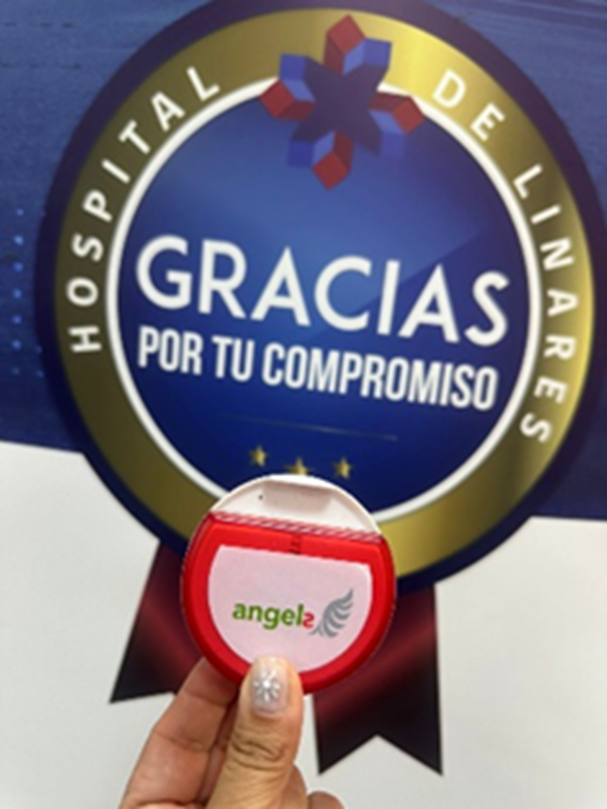
Spirit and passion for care
At Linares Hospital, I found an empowered nursing team. They told me how they focused their work on the continuous improvement of patient care processes. I saw in them the spirit and passion for care, and I was convinced the quality monitoring project would be a success.
When I met with María Soledad and her team, I proposed the idea of implementing a system of recording and analyzing data to evaluate each case, identify areas for improvement, and ensure excellent care. They not only accepted the challenge, but they took it on with a passion that touched me deeply.
The nurses divided themselves into three working groups. One group would be responsible for collecting data from patients’ medical records, one for liaising with the neurologist, and the third group would be responsible for uploading data to RES-Q
They presented the proposal to the hospital’s medical director, who supported them, and so they began to record every step of the care process, from the patient’s arrival until discharge. This detailed record included response times, treatments applied, protocol compliance and results obtained.
We formally began this project in January 2025 with a ceremony at the hospital that was attended by the Medical Director, the Head of Neurology, the Subdirectorate of Nursing and Emergency Professionals, the Critical Patient Unit and the Angels Initiative.
During the project, nurses led regular meetings where we reviewed progress, challenges and opportunities for improvement. Their ability to implement changes quickly and effectively was key to the success of the project.
Thanks to the leadership and dedication of María Soledad, Carla and Catalina, along with my support, the Hospital of Linares achieved a WSO Angels Gold Award in the first quarter of 2025. This achievement not only reflects their effort and vocation to service, but also their commitment to evidence-based and deeply humanized work.

